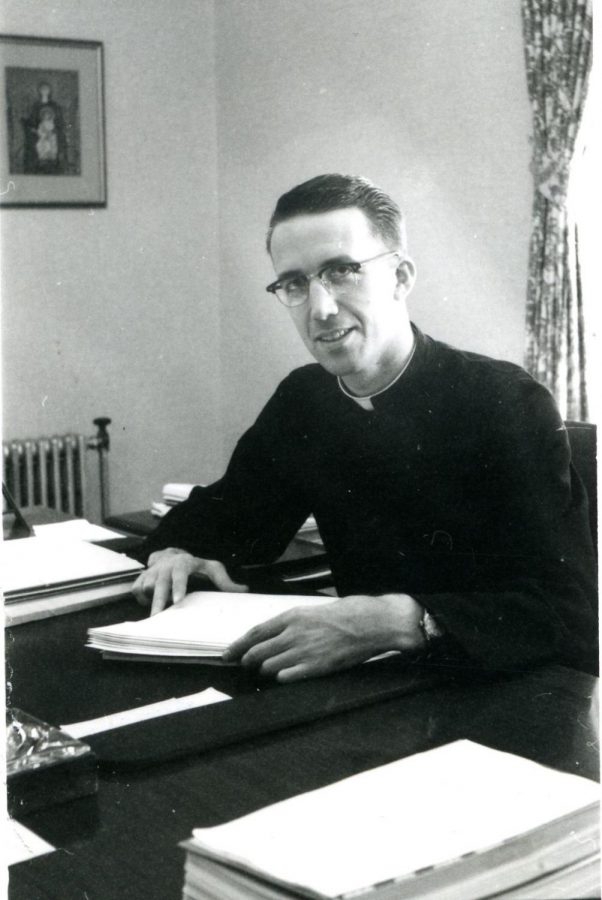In break from the past, new curriculum requires religion course
As part of the new curriculum, St. Edward’s students will now be required to take a religions course. This aligns the university with its sister institutions, which have traditionally required that students take at least one religions course.
This change has come after years of discussion within the General Education Renewal Committee, which was in charge of reforming the curriculum.
“One of the driving interests was to give students more options,” Steve Rodenborn, the department chair for religious studies said. “We knew it was more consistent with our peer institutions. Most Holy Cross schools have a requirement”
In fact, students at The University of Notre Dame are required to take a two-course sequence of religious studies. All freshman are required to take a Foundations of Theology class and upper-classmen another theology course. Rodenborn said that he thinks all students should come away from their education with a religious studies course under their belt.
“Students should have the skillset to think through theology and religious studies,” Rodenborn said. “[They] should have to think carefully and critically about how religion informs the wider world.”
Some students are enthusiastic about the new changes and grateful for the opportunity to take a religions course.
“I was actually totally cool with it I enjoy studying religion,” junior Princess Leia Aguilera said. “I had actually picked legal ethics and logic because I was planning on going to law school. But when I found out I had to take a religions course I was really excited about it.”
“I mean we’re a religious school,” she said. “I think we should be required to take at least one religions course.”
Richard Bautch, professor of religious studies, said that students seem enthusiastic.
“A good indicator among students is that on the Fall schedule, nearly all the Religious and Theological studies courses are enrolled at the current limit and there are waiting lists for several courses,” Bautch said. “We will likely be adding courses to meet the demand.”
He said that it fits with the university’s mission of educating the whole person.
“Religious Studies” is part of the university’s mission statement and it appears in the section on St. Edward’s Catholic identity. It’s important that the curriculum directly reflects what the mission statement says; the university puts religious studies in general education so all students can have the experience of a course in religious studies.”
Bautch echoed what Rodenborn said about the benefits of having a religion requirement in the curriculum, commenting on the importance of receiving a holistic education.
“[Students] learn about beliefs, customs and how religion can lead one to civic engagement, both local and global. In these courses generally, students gain or sharpen skills such as critical thinking, creative thinking and information literacy,” Bautch said. “These are the type of skills that one associates with a first-rate general education curriculum. And that’s what we have, thanks in part to the course in religious and theological studies that all students take.”
On the other hand, some students have considered potential negatives of a required religion course:
“The fact that [students can choose] any religion course is good” said Lilli Hime, president of America I Will. “I think that religion can be a sensitive subject for some people, especially people who have had a bad history with it or people whose identity has been targeted by certain religious groups.”








Raymond Fleck • Jul 27, 2018 at 7:32 pm
An interesting development. I’ll have to review St. Ed’s course offerings in Religious Studies. Are any offered on line?
adviser • Aug 14, 2018 at 1:17 pm
The best thing to do is to check with the Department Chair, Dr. Steve Rodenborn: [email protected] Thanks for your interest!